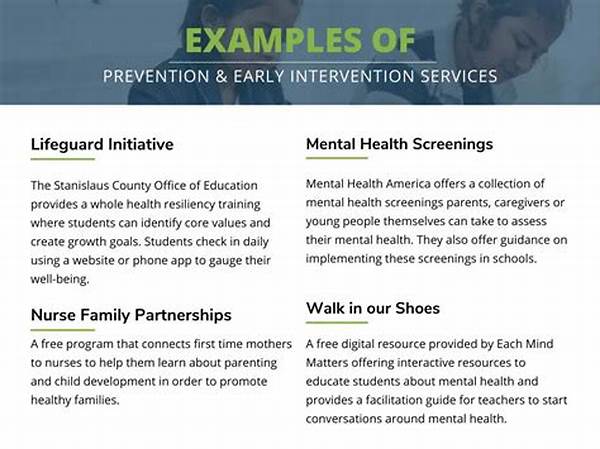Conflict prevention and early intervention are critical mechanisms in ensuring global peace and security. In today’s interconnected world, conflicts can have far-reaching consequences, affecting not only regions directly involved but also influencing global stability. This article explores various aspects of conflict prevention and early intervention, discussing their significance, methodologies, and practical implications in a formal, structured manner. Understanding these elements is essential for policymakers, stakeholders, and communities aiming to foster sustainable peace.
Significance of Conflict Prevention and Early Intervention
Conflict prevention and early intervention hold paramount importance in the realm of international relations and security. By addressing tensions and disputes before they escalate into full-blown conflicts, these strategies minimize human suffering, economic loss, and political instability. The role of diplomatic engagement, trust-building measures, and community leadership is indispensable in this process. Effective conflict prevention relies on early detection of warning signs, which include political, social, or economic indicators of potential unrest. When employed successfully, early intervention strategies not only avert destructive outcomes but also lay the groundwork for long-term harmony and development.
Moreover, conflict prevention and early intervention enable nations and governments to allocate resources more efficiently. Rather than investing in military responses and post-conflict reconstruction, resources can be directed towards sustainable development and peacebuilding efforts. The adoption of these strategies not only curbs immediate threats but also fosters an environment where dialogue and cooperation can thrive. It is through such measures that societies can prevent the cyclical nature of violence and create lasting solutions to deep-rooted issues.
Strategies for Effective Conflict Mitigation
1. Diplomatic engagement is pivotal in conflict prevention and early intervention. By fostering open communication channels, conflicts can be de-escalated before reaching critical stages.
2. Economic initiatives, such as infrastructure development and poverty alleviation, play a vital role in conflict prevention by addressing root causes of discontent.
3. Implementing educational programs can significantly aid in early intervention by promoting peace and understanding among diverse communities.
4. International cooperation enhances the effectiveness of conflict prevention strategies by facilitating resource sharing and collaboration among nations.
5. Monitoring and early warning systems are integral to identifying potential conflicts, allowing timely early intervention to prevent escalation.
Implementing Conflict Prevention and Early Intervention
The implementation of conflict prevention and early intervention strategies requires a multifaceted approach. Firstly, it necessitates the establishment of reliable early warning systems that can detect early signals of potential conflict, such as political unrest, economic decline, or social tensions. These systems should be supported by robust data collection and analysis mechanisms, providing policymakers with accurate insights into emerging threats.
Secondly, collaborative efforts between local and international actors are crucial in executing effective early intervention. Engaging community leaders, civil society organizations, and government institutions can foster a collaborative environment where conflict resolution strategies are jointly developed and implemented. By pooling resources and expertise, stakeholders can address the root causes of conflict, ensuring sustainable peace efforts. Furthermore, establishing platforms for dialogue and negotiation can mitigate misunderstandings and prevent conflicts from escalating into violence.
Challenges in Conflict Prevention and Early Intervention
Despite their significance, conflict prevention and early intervention face numerous challenges in practice. One major obstacle is the complexity of underlying issues that often contribute to conflicts, such as historical grievances, political power struggles, and economic disparities. Addressing these multifaceted issues requires a holistic and coordinated approach involving various stakeholders.
Additionally, limited resources and funding can hinder the effective implementation of conflict prevention strategies. International aid and support are essential in bridging these gaps, enabling governments and organizations to invest in necessary infrastructure, education, and social programs. Another challenge lies in the volatility of political landscapes, where changing governments and policies can disrupt ongoing peace efforts. To ensure continuity and success, conflict prevention and early intervention initiatives must be adaptable and resilient, capable of withstanding political fluctuations and setbacks.
The Role of Technology in Conflict Prevention
Technology plays an increasingly vital role in conflict prevention and early intervention. With advanced data analytics and artificial intelligence, predictive models can be developed to identify potential conflict zones and facilitate timely interventions. Social media platforms can also serve as tools for monitoring public sentiment, enabling authorities to address grievances before they escalate.
Moreover, technology facilitates communication and collaboration among stakeholders, allowing for real-time information sharing and coordinated responses. Online platforms can bridge geographic distances, bringing together local and international actors to strategize and implement effective conflict prevention measures. While challenges remain in leveraging technology, its potential to enhance early detection and intervention capabilities is undeniable.
Importance of Political Will in Conflict Prevention
Political will is a cornerstone of successful conflict prevention and early intervention efforts. Governments and leaders must exhibit a commitment to peace by prioritizing dialogue and negotiation over military solutions. Demonstrating political will ensures that necessary resources are allocated towards proactive measures rather than reactive responses.
Moreover, political will fosters an environment where diverse voices and perspectives are valued, promoting inclusivity in conflict resolution processes. By engaging various stakeholders, including marginalized communities and opposition groups, governments can address underlying grievances and build consensus. Ultimately, political leadership and determination are indispensable in creating a culture of peace and preventing conflicts from escalating.
Summary of Conflict Prevention and Early Intervention
In summary, conflict prevention and early intervention are essential components in maintaining global peace and security. By focusing on early warning systems, diplomatic engagement, and collaborative efforts, it is possible to address underlying issues before they escalate into violent conflicts. The strategies employed in conflict prevention and early intervention not only mitigate immediate threats but also promote sustainable peace and development.
However, numerous challenges exist in implementing these strategies, including resource limitations, political instability, and complex root causes of conflicts. Addressing these challenges requires a concerted effort from local and international actors, leveraging technology and fostering political will. Ultimately, the success of conflict prevention and early intervention hinges on the ability of stakeholders to work together in creating inclusive and effective peacebuilding frameworks.





